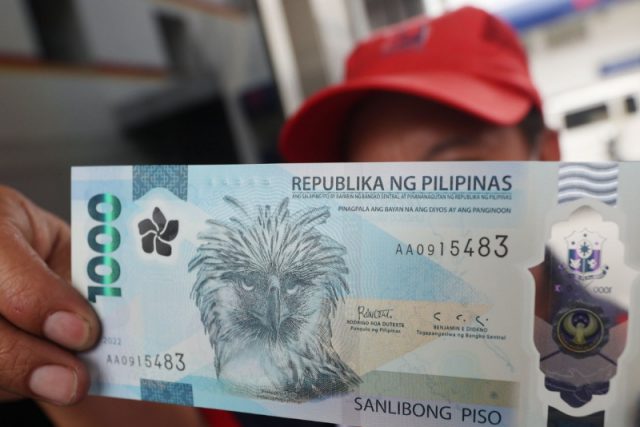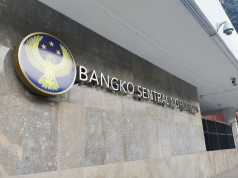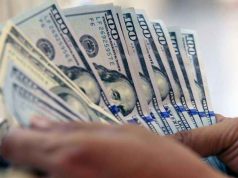
Stapling the P1,000 polymer bills can still be used in circulation.
The Bangko Sentral ng Pilipinas said this amid previous reports that retailers rejected their folded banknotes.
To allay the public’s fears, the BSP previously assured them that folded bills, whether made of paper or polymer, can still be circulated and accepted for payment.
During a briefing on July 18, BSP Managing Director Tony Lambino said that stapled bills are also still legal and can be used in circulation.
“Ang stapling ay sana ho huwag nating gawin dahil ang buhay ng ating mga bills, whether paper or polymer, ay iiksi,” Lambino was quoted in a report as saying.
“Pero gusto ko rin idagdag, ang possession and use of stapled bill, hindi yan ilegal. Dapat tanggapin pa rin ang stapled bills at pwede pa ring gamitin sa pang-araw-araw na transaksyon,” he added.
Lambino, however, discouraged putting staples on the banknote’s material for longer use.
“Ang gusto natin talaga para sa kapakanan ng taumbayan ay mahaba ang buhay ng ating salapi. ‘Yung stapling huwag na lang ho sana nating gawin,” Lambino was quoted in a report as saying.
Excessive folding and stapling are among the actions that the public should not do, according to the BSP’s guidelines in handling the P1,000 polymer banknote.
READ: Longer wallets needed: Eyebrows raised over BSP guidelines for new polymer bills
Officials of the BSP Mindanao Regional Office also previously warned that stapling this newly-designed money can be considered as “intended mutilation” that is punishable by law.
READ: Public reminded: Stapling new polymer bills is against the law
The officials cited Presidential Decree 247 that punishes anyone who willfully defaces, mutilates, burns, tears and destroys currency.
Following Lambino’s remarks, the central bank drew some ire online over its confusing statements about the new bill’s use and misuse.
“Pronouncements of the BSP just makes the use and misuse of the polymer bill MORE confusing,” one user said.
“Pero mga negosyanteng maliliit at ordinaryong tao, natatakot ng tanggapin at gamitin, dahil sa dami ng pinagsasabi, BSP!” another user commented.
Other users pointed out the now-prevalent fear of receiving the new currency because of the confusing policies.
“Yung pumipindot ka sa ATM at mangangamba baka may mapasamang bagong P1,000 sa withdraw mo,” one user said.
The confusion over the use and misuse of the P1,000 polymer-made notes might have started after the Police Community Affairs and Development Group (PCADG) Central Luzon uploaded a Filipino translation of the BSP’s rules on using them.
In the infographic, the PCADG stated that those who will mishandle the bill can be penalized with a fine worth P20,000 and a five-year jail time.
The PCADG similarly cited Presidential Decree 247 in its post.
This law, however, does not include mere folds, creasing and even crumpling of the Philippine currency among the punishable acts.
RELATED: Will folded P1,000 polymer banknote be accepted for payment?
Moreover, the BSP has set the following conditions for a banknote to be rendered unfit for currency:
- It contains heavy creases which break the fiber of the paper and indicate that disintegration has begun;
- It is badly soiled/contaminated and/or with writings even if it has proper life or sizing; or
- It presents a limp or rag-like appearance.
READ: Explainer: Here’s when your banknote can be considered unfit for currency








